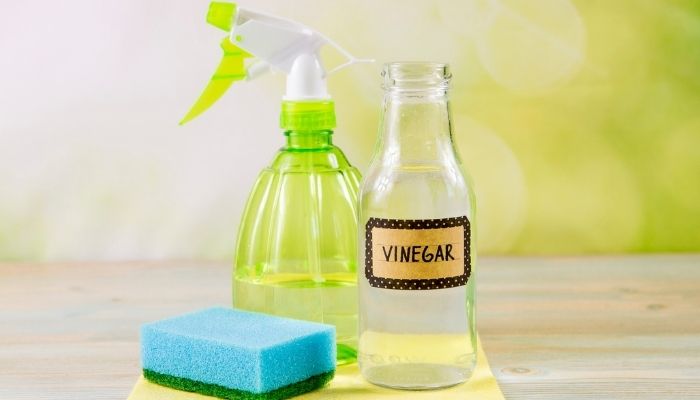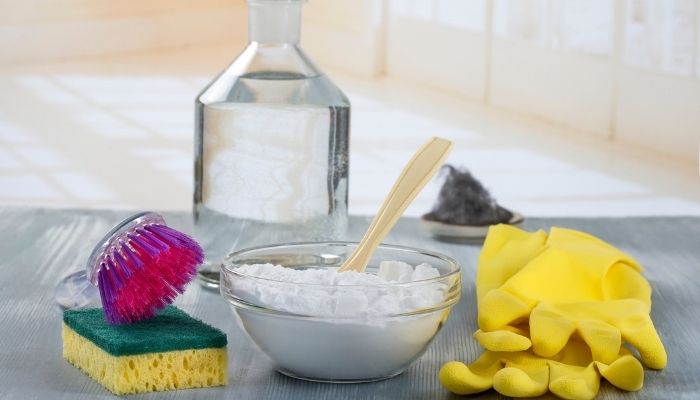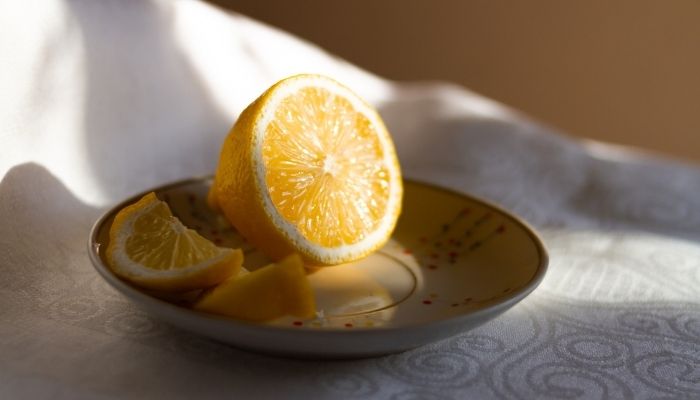Cleaning your stovetop can save you money because it extends the life of the appliance. On the other hand, harsh chemicals are unnecessary and can damage surfaces. A cooktops size, form, and often caked-on reminders of meals long gone can make all the elbow grease in the world seem pointless and daunting.
One of the main things people look at when shopping for a cooktop is how easy it is to clean. While flat, smooth cooktops are easier to clean than cooktops with grates, they both can pose cleaning challenges. If you find yourself struggling to remove a stain or grease off your cooktops, you've come to the right place! Here are some cleaning tips you need to tackle any cooktop mess.
White Vinegar

You can replace the chemically harsh and costly cleaners with a cloth dipped in distilled white vinegar if you want a more natural and less expensive cleaning solution for your cooktop. Alternatively, apple cider vinegar can be used as a substitute. Clean your cooktop by putting distilled white vinegar on a lint-free cloth or paper towel and wiping the glass-ceramic surface thoroughly. Rub in a more thorough manner to remove stubborn spots. You can also create an all-purpose spray by mixing one-part white vinegar to two parts tap water in an unused spray bottle.
Baking Soda

Baking soda is an excellent natural cleaner because its moderate chemical makeup aids in the breakdown of grit and grime, and its mild abrasive characteristic allows for more thorough scouring without harming the glass. One way to use is, combine baking soda with soap or vinegar, adding a few drops of water if necessary. Apply a small amount on an old rag and work in circular motions over the affected area. Most, if not all, of the stuck-on food, should come off with a little elbow grease. Another method is to combine one tablespoon of baking soda and one tablespoon of salt in a mixing bowl. After that, add one tablespoon of water and combine the paste. Scrub the gunk away with a rag dipped in the mixture. Pour the mixture over the overflows. It absorbs liquid and is simple to clean.
Lemon Juice

Lemons have a natural ability to cut grease, which makes them perfect for the stove. Simply sprinkle a handful of baking soda on a glass stovetop to remove stubborn food. Then use a lemon slice to rub the surface. To remove any remaining baking soda particles or lemon pulp, wipe the surface with a moist towel. You can also try the method of mixing lemon juice, water, and soap. Once the ingredients are mixed you can soak a rag in it, wring it out slightly, and place the rag over the cooktop for at least 30 minutes, then wipe off the cooktop and repeat if needed.
Boiling Water
Consider boiling water if you don't have any extra cleaning supplies but still need to clean your cooktop quickly. Pour the hot water over the cooktop surface gradually and carefully. The stuck-on particles will simply wipe away if you wait until it cools. Scrub stubborn places with a sponge and a little soap if necessary.
Make sure the stovetop is cool before attempting any of these approaches. Wipe up any loose crumbs with a moist paper towel. To avoid having to undertake a full, deep clean again, remember to clean it after each usage. Keep cleaning the burners on a regular basis to avoid oils from accumulating and causing damage to your equipment.
The longer you wait to clean your cooktop, the more filth will accumulate. If you find yourself considering a new cooktop while cleaning, start your search at . And if you have any questions, contact us or visit our store for help!